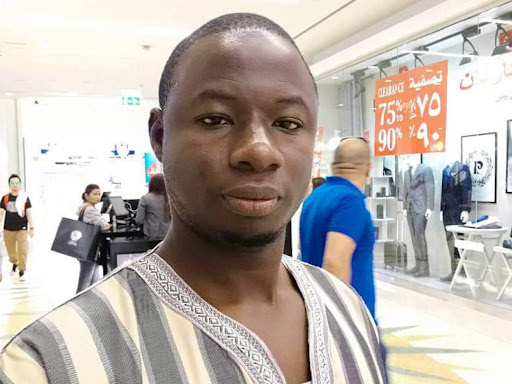Five years after the murder of investigative journalist Ahmed Suale in Ghana, the International Press Institute (IPI) condemns the lack of progress in holding those responsible to account and calls for transparency from the authorities about the status of the investigation.
Suale was shot dead in Accra, Ghana’s capital, on January 16, 2019, in an apparent contract killing. He worked as a reporter for Tiger Eye P.I., an investigative outlet led by well-known journalist Anas Aremeyaw Anas which is known for undertaking undercover investigations to expose wrongdoing. At the time, Suale was the lead investigator behind a Tiger Eye exposé on corruption in Ghanaian football published in June 2018 ahead of the 2018 World Cup.
Suale’s murder is believed to have been connected to his investigative journalism. Since then, local rights groups have been raising concerns about the government’s commitment to solving the case, after political leaders, among them the current president, cast doubt on links between the killing and Suale’s work.
Following their work on the football investigation, Suale and the Tiger Eye team were subject to vicious attacks at the hands of Ghanaian MP Kennedy Agyapong, who called for Anas to be hanged and for Suale to be beaten up while showing a picture of Suale’s face. Last year, Suale’s family released a statement saying that Agyapong’s “reckless and criminal conduct” had instigated Suale’s murder. Agyapong has denied involvement in the murder and refused to apologize for his comments.
The criminal investigation has so far yielded no clear progress, despite claims from law enforcement authorities that the probe is actively ongoing, and despite assurances from top officials. Shortly after the killing, a handful of suspects were arrested but later released. Authorities have provided scant information since.
“It’s already been five years and the authorities in Ghana are yet to make any headway in investigations into Suale’s death” Muheeb Saeed, program manager at the Media Foundation for West Africa (MFWA), told IPI. “Each day of impunity is a boon to the perpetrators and an incentive to future assailants of journalists and other citizens who stand up to crime.”.
Last year, IPI identified Suale’s case as one of 11 priority cases of impunity around the world requiring urgent action to secure justice and uphold media freedom.
“Five years after Ahmed Suale’s murder, the IPI global network reiterates our demand for a thorough, transparent, and credible investigation”, IPI Director of Advocacy Amy Brouillette said. “The disturbing lack of progress in this case contradicts Ghana’s professed support for media freedom and endangers the safety of reporters in the country, threatening to undermine Ghana’s democracy, which is traditionally seen as a model in the region. We stand firm with Ahmed’s family and colleagues in demanding that those responsible for this crime be held to account and that authorities take concrete action to protect journalist safety in the country.”
Pressure on press freedom in election year
Ghana has positioned itself as a global supporter of media freedom and is one of just four African countries to have joined the Media Freedom Coalition, a group of 50 states that have agreed to protect media freedom at home and abroad. In 2021 the government set up a Coordinated Mechanism on the Safety of Journalists aimed at addressing press freedom violations
Its record in practice calls these commitments into question. The success of the safety mechanism, by the government’s own account, has been minimal. In addition to the impunity for Suale’s murder, IPI has documented several press freedom violations in Ghana over the past year, including an attack by ruling party supporters on a television broadcaster in Accra and the arrest of 15 journalists in September who were covering a public demonstration against economic hardship. Ghana’s information minister confirmed a rise in attacks on journalists in an address to parliament last November.
These attacks and the lack of progress in the Suale murder investigation cast a grim shadow over the press freedom situation in the country. There is growing apprehension that attacks on journalists and independent media outlets may increase as the country heads toward general elections in December this year, one of dozens of votes taking place around the world in a crucial year for global democracy
